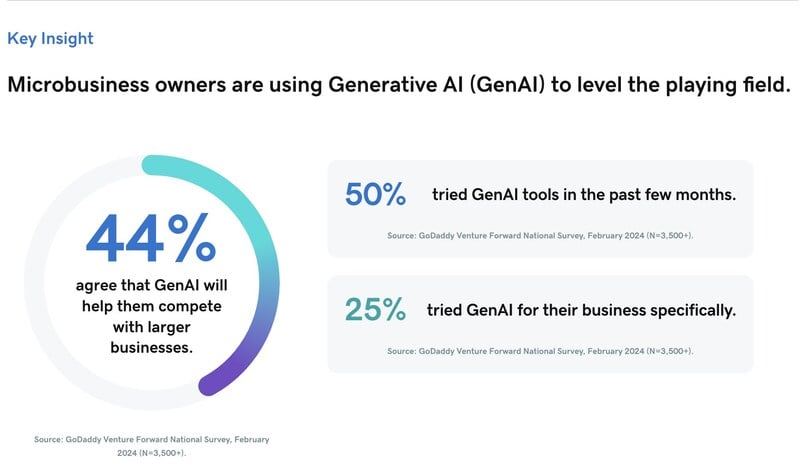
“There’s a big difference between saying and doing within marketing” – but we’ll get to that.
Here are the facts, as they stand at the time of writing this piece: Major marketing players are moving mountains – for those of us who attended the Microsoft Gemini presentation a few weeks ago, we have witnessed firsthand how three weeks of work have been compressed into seconds – yet, quite a few marketing SMEs and consulting businesses are still seen biting their fingernails wondering “when”, “how” and “why” to implement AI and emerging tech.
Over the past few weeks, Campaign Middle East has spoken to a score of experts across major brands about their strides in incorporating GenAI models – at varying levels of adoption – sharing anecdotal evidence of unlocking speed and flexibility within creatives; real-time, data-informed marketing strategies; and value generation through personalization.
Yet, most used cases we’ve witnessed within marketing businesses have been limited to chatbots, translation assistants, automated email marketing with the more complex potential remaining untapped and left to catch dust on the “when the budget arrives” shelf.
However, there’s no dearth in aspirations: 54 percent of small business owners and entrepreneurs in the MENA region surveyed by GoDaddy’s 2024 Global Entrepreneurship Survey stated that they intended to leverage digitization to expand market reach and acquire new customers, while 41 percent aim to enhance customer engagement and experience through digital means.

The survey results also highlighted respondents sharing that the benefits from AI assistance include marketing (67 percent) and business planning and strategy (53 percent).
Nevertheless, concerns about implementation persist, with over one-third of small business owners and entrepreneurs citing high implementation costs as a significant challenge, if they were to adopt AI for their business.
Speaking to Campaign Middle East editor Anup Oommen about the say-do gap between business aspirations and the actual implementation of GenAI for marketing and brand strategies, Adam Taylor, the Director of Marketing at IFZA, said, “Early adoption costs shouldn’t be a barrier. Instead, knowledge and understanding of AI, its applications, capabilities, and the necessary skill sets to use it effectively are crucial.”
“From my experience of working with hundreds of SMEs and consulting with marketing teams, the primary obstacle is knowing where to start — there’s a big difference between saying and doing.”

The GoDaddy survey also raised other concerns such a lack of skilled personnel, integration challenges with existing systems, lack of awareness about available solutions, and a lack of understanding about AI’s benefits for their businesses.
Hisham Jafar, the Director of Data, Insights and AI, at Create Group, echoed these thoughts in a candid conversation with me, saying: “There’s a level of pressure on corporations and executives to say ‘We’re doing AI too’. That’s then creating a gap, as corporations sign multi-million dollar deals with the major tech corps, but their workforces don’t have the clarity or skillset to leverage those massive, generic AI toolkits for specific and niche internal problems. We’re in the phase where there’s a massive [AI] arms and PR race, but a mist of confusion internally on what to actually do with it.”
In a more casual conversation with Campaign Middle East, Sachi Ediriweera, the design lead at MCH Global, said: “The key is to not just invest in next-gen tech for the sake of it, but also in talent that are equally capable or harnessing GenAI within their workflow.”
Even among those experimenting with the benefits of AI, there are still major roadblocks preventing CMOs and marketing managers from going beyond using GenAI for low-impact tasks.

In Jaffar’s words, these roadblocks include a lack of education, understanding or awareness of AI amongst leaders which is translating downwards en-masse; a lack of clarity internally on how the marketing organisation will use AI and a roadmap to its usage and adoption; a lack of clear ownership of AI within the marketing organization; a lack of integration between marketing organisations and their central IT departments; and a lack of internal engagement and community-building to create the interest, use-cases, and impetus to adopt AI tools and tech.
With nearly 70,000 AI companies globally, determining which AI programs to use can also be daunting.
“Research is essential, as this initial complexity can be a barrier,” Taylor said. “However, there is ample research available, and many AI programs offer free trials, making it straightforward and cost-effective to test their capabilities.
“Many AI tools offer affordable solutions for various business functionalities beyond content creation. For example, Brand24 provides a comprehensive sentiment analysis tool for $79 a month, used by companies like Samsung.”
He added, “Brevo, a customer management AI tool, analyzes customer lifetime value and runs multichannel marketing campaigns for clients such as eBay and Louis Vuitton. Trellis, at $299 a month, is widely used for price modeling, advertising, and ROI prediction, especially within the eCommerce industry by Amazon sellers.”
These are all critical functions for business optimization beyond just creating good content, and can have an impact on customer interactions, improve a company’s bottom line, and provide real-time reporting and analysis for strategic decision making.
“It’s only when you go beyond these “off the shelf” programs that it becomes investment intensive, with costs still relatively acceptable for ROI,” Taylor explained.
“Developing proprietary AI-powered programs specific to your needs, such as building AI assistants, can cost between $5,000 and $50,000, depending on complexity. Businesses need to assess whether these investments represent long-term benefits.”
Let’s call a spade – a spade: It’s time for marketing SMEs and consulting businesses to stop using ‘cost’ as an excuse and begin addressing the say-do gap.









